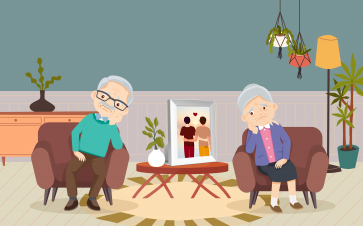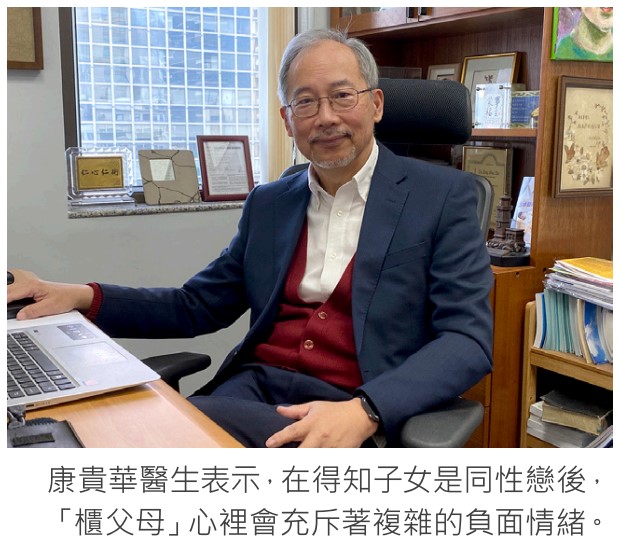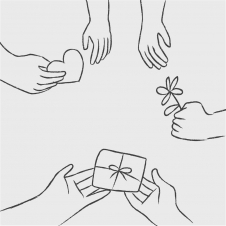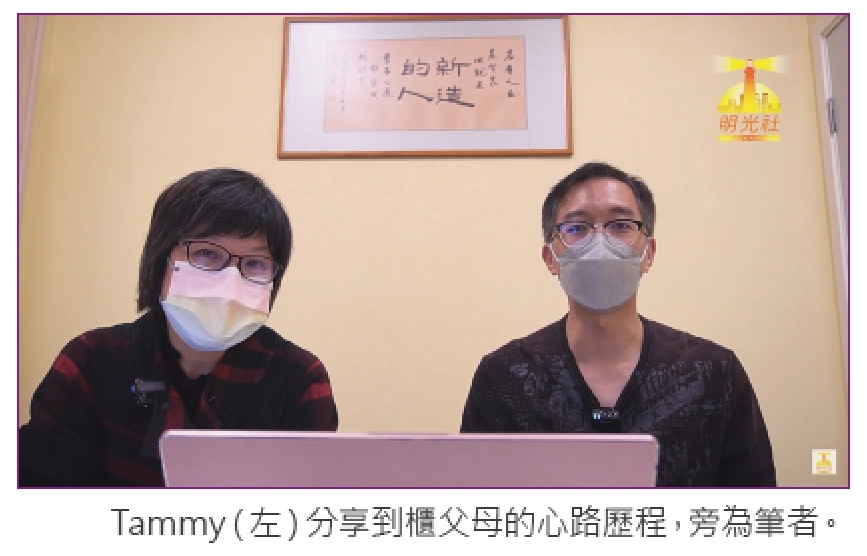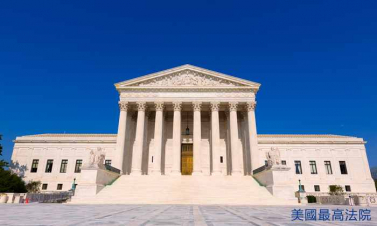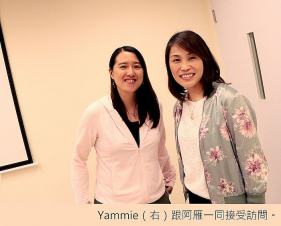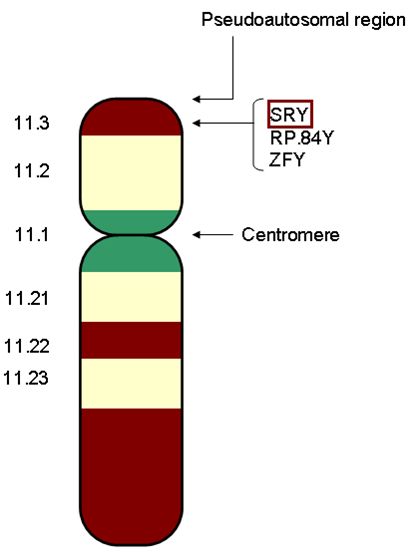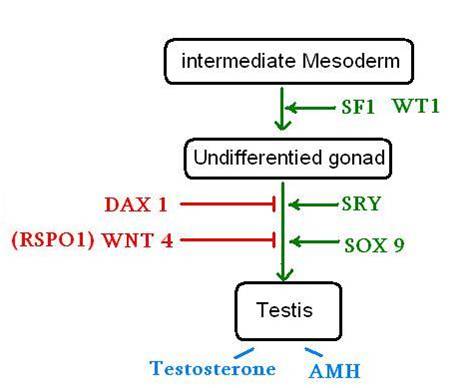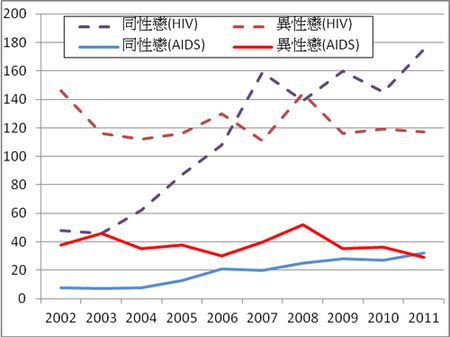訪問影片名稱:Exclusive: 'Gay cure' advocate apologizes
影片原載點:http://ac360.blogs.cnn.com/2013/06/22/exclusive-gay-cure-advocate-apologizes/?hpt=ac_mid
A:Anderson Cooper
B:Alan chambers
A: You’ve issued an apology and the organization Exodus International is shut its doors. Can you explain what you are apologizing for? What are you sorry about?
B: Well… We are sorry for the many people who took part in the ministries of the councilors or impacted by the rhetoric, frankly, of leaders including myself, over the years that caused shame or hurt and promises whether they were intentional or not of promising that orientation would change and that they could expect something that they didn’t come to receive so that’s something we are very very sorry for the hurt, the shame and the anxiety and the trauma that people were caused.
A: Why? Why now? I mean… what made you decide to… what changed your mind? ‘Cause its rare… I mean I got to say I got to give you props for this… it is rare for anyone in public life changes their mind and then publicly acknowledges it and actually says the word ‘I’m Sorry’ as opposed to like “Well I misspoke” or something. What… why now?
B:Well it’s been a long thing coming. It’s been a process that we have been working through for many years now. Hearing stories, certainly coming to terms with our own life, you know, I came to Exodus as a 19 year old kid in 1991 and it wasn’t until 2006 that I even admitted publicly that I still had same-sex attractions that those things haven’t changed for me. And listening to people’s stories and hearing them say they felt we promised them something… that we did promise them something… we did promote something that hurt them, that’s something we couldn’t help but apologize for and we feel very very sorry about it.
A: In one of the apologies I read that you put on your website and it’s titled “I’m Sorry”. I want to read part of it ‘cause it says something that is important and I want to ask you something about it. “I’m sorry that so many have interpreted this religious rejection by Christians as God’s rejection. I’m profoundly sorry that many have walked away from their faith and that some had chosen to end their lives.” Do you believe that the teachings of Exodus are responsible for people’s deaths?
B: You know, I believe that there are vulnerable people out there who are in a state of anxiety over their feelings and the things that they cannot change. They look to Exodus and they look to religion and to the church to offer them help. And when we have told them that they should feel ashamed or that they should try to change these things that we have realized that we cannot change, I believe that that causes all sorts of trauma and I believe that there are people who walk away from their faith. Certainly, I know them, I know people who have taken their life because they felt so ashamed of who they are, felt like god couldn’t love them as they are and that’s something that would haunt me until the day I die that I could have said something that caused someone trauma, that caused someone to feel that they could do something about something that they couldn’t do anything about and so yes, I do believe that we have a tremendous amount of work to do to make up for how we wield the sword of the beliefs that we live by.
A: Do you now believe that it’s possible to change your sexual orientation?
B: No, I don’t.
A: But…do you consider yourself… you are married and you’ve said you still have same-sex attractions which you work on resisting… do you consider yourself ‘gay’?
B: I think we are so apt in our culture to put sexual labels on ourselves that are really secondary at best to who we are. You know, for me, I do have same sex attractions, but also I have an exclusive attraction to my wife in 16 years almost of marriage. I’ve never been tempted to be unfaithful to her. That doesn’t mean that I don’t experience same sex attraction. It’s just, for me, those areas of my life have changed, that I do have a very happy, content, amazing relationship with my wife, that is everything a marriage relationship should be. And that attraction I have to the same sex doesn’t hinder me in that relationship. It’s not something that I resist. It’s just something that is part of who I am.
A: Do you believe that people are born-gay?
B: I think that there are all sorts of things that contribute to how we are or who we are attracted to or the attractions we have or any part of our life. I Certainly think genetics play a part of them. I think it’s too simple to say that there is one genetic component to this that forces us to feel or behave in any certain way just as I think it’s too simple to say that there is some sort of experiential or nurture type aspect to this that forces us to be that way. I think it’s really so many things that it’s a very complex issue and I think we invalidate that complexity of someone’s story when we say that it’s just one thing or not one thing.
A: But you don’t feel that your attraction to people of the same sex, you don’t believe that something you chose, you were choosing not to act on it… but it’s not something you chose initially or do you believe that it may have been?
B: No, I didn’t choose it at all, I didn’t wake up one morning and out of life and choose to feel attracted to the same sex and I’ve never met one person who did. And I think it’s… force someone to say it as a choice, again, I think that it invalidates the complexity of the story and really does more harm than good.
A: You met with… I mean you are not just apologizing… you actually met with people who have been through Exodus, people who have worked, in some cases, for years, to change their orientation, people who have attempted suicide, in some cases. In Lisa Ling’s “Special Report: God and Gays”, they actually confronted you and you apologized to them directly but they told you some of their stories and I want to play one clip from that documentary from a man named Sean.
(Sharing by Sean)
A: I was wondering what person was going through your mind when you heard of their stories?
B: What person was going through my mind?
A: No, I said what personally was going through your mind when you heard their stories?
B:It was excruciatingly difficult to sit there and listen to that. It was a crushing weight to just simply hear their trauma and their pain and their anguish and what was going through my mind was I would do anything to have fixed this. And the only thing I can do to fix this was to make sure that I apologize and I’m very very careful and determined in the future not to make some of the same mistakes and say some of the same things that I’ve said in the past.
A: One of the things you also said in your statement, which I thought was really interesting, that you said that, that you and Exodus have espoused over the last, in more than, 3 decades, that it did not show respect, I think, to our fellow human beings, you said, and it wasn’t biblical. I’m wondering whether you could just explain what you mean by that?
B: Well, I think some of the things we have expressed, you know, certainly the notion that someone can go into a therapy session and change from gay to straight whether in a long period of time or a short period of time, that we find to be unbiblical which was why, over a year ago, we removed the whole reparative therapy component from our referral process and we..
A: So you don’t believe that reparative therapy works?
B: I don’t. You know, for people to say that you can through a therapeutic process change your feelings from gay to straight and there are all sorts of percentages that I hear out there. Some people will say I’ve experienced a certain percentage of reduction. I don’t know how you qualify or quantify that. And so I don’t believe that that’s possible. And you know, I’ve been a lifelong member of weightwatchers and probably will for the rest of my life. It’s struggle with food and things like that and weightwatchers have never said to me that they could change my orientation towards food. They help me deal with things that I want to deal with in my life and help me meet goals that I want to meet but they haven’t told me that they could fix me or they could cure me. So I certainly don’t believe that that’s something that we can say about this issue at all.
A: So somebody, a young person, sitting somewhere in a small town right now who may be seeing this and who might have a sense that they feel that they are gay, what do you want them to know? Because there are a lot of kids, I guess previously, as a member of Exodus, as the head of Exodus, a supporter of Exodus, you would have said, you know, change his possible… that… what do you want somebody now, a young person, seeing this, who thinks they’re gay, to know about themselves about their feelings?
B: Well, certainly the thing I’ve come to realize in my own life that God’s love and his affection for us and his creation isn’t dependent on our behavior. It’s not dependent on how we feel, it’s not dependent on what we do; It’s dependent on who we are. He created us, He wants to have a relationship with us, He loves us as we are no matter what. And so for a kid sitting there who is gay or has same sex attractions, whether they have a religious belief or not, for them to know that there’s nothing more important than making it through some of the most difficult times in your life no matter whether you are being bullied or experiencing shame or about the feelings that you have. What’s important is to find support, find community, especially kids to hopefully have parents who will support them, who will love them, who will walk through this journey with them. I think we should also be very careful not to dictate how someone should live their life whether or not they should embrace behaviours or feelings or whatever. But for us, just to allow kids to be who they are and be the kids they need to be at this point of time, for me, as a religious kid, as a Christian kid, my faith was very important to me, it remains important to me. But that should never be something that is used to force someone into a certain type of life that they do not want to live.
A: Can you be a good Christian and be a gay person, an openly gay person in a relationship with another person of the same sex?
B: I know a lot of amazing Christians who are in same-sex relationships.
A: And you believe a gay person can go to heaven?
B: Absolutely. The Bible doesn’t say that this type of person is allowed to have a relationship with Jesus Christ. That offer is open to every single person and the people who have a relationship with Jesus Christ. No matter what, once they have that relationship, their eternity is secure. That’s the amazing, miraculous, astounding thing about the good news of the Gospel is that it’s available for everyone.
A: Do you still believe that is being gay, just being gay, is that a sin?
B: I have a set of beliefs that are absolutely rooted in my understanding of the Bible about sexual expression. But whether we call ourselves gay or say we have same-sex attraction, those things are not sinful to simply have emotions and feelings that we didn’t ask for or choose. It’s just a reality in life. And though I have a conviction about sexual expression, it’s … that serves me… that isn’t something that the Bible commends me to wield over someone or to tell someone how they should live their life. And certainly it’s not something that excludes someone from a relationship with Jesus Christ.
A: So what I’m hearing, just to be clear, being gay or feeling you are saying, is not inherently a sin, but acting on it, it’s the behavior which you consider as a sin, but you don’t… you don’t want to, sort of, wield that judgment over people anymore.
B: Absolutely. My personal conviction in my study of Scripture and certainly in my own life, is that sexual expression is reserved for something very narrow, for heterosexual marriage. And while I believe that, you know, for me, I live my faith and I share my life. And to live my faith is, you know what I believe, just look at how I live my life. But I also know that it’s not my job to tell someone how to live their life or how to interpret Scripture. That’s for me.
A: Do you … can you see a day where you will support same-sex marriage? Or do you feel that Biblically that that is not, in your understanding, and again you do not want to make pronouncements on the people, but in your understanding that is not Biblical?
B: You know, for me, I… when it comes to Biblical, I do have a Biblical conviction about that. And Biblically that isn’t something that I can support and yet from… we don’t live in a Biblical society, we live a civil society, so I’m not sure, honestly, what my thoughts are in that regard. I know 5 years ago an Exodus… We stepped away from the policy and politics arena and personally that is a decision that has been wonderful for us. I don’t feel that it is important for anyone to have me as a supporter of any type of gay rights. I’m a supporter of human rights to be sure and there are all sorts of atrocities happening around the world and even in the United States that I feel very very passionate about. Gay marriage is something that is a difficult issue for me. I’m not here to fight anyone on those issues and I certainly support my friends and relatives who are in same-sex marriages and same-sex relationships. I want to spend and be a part of their lives as well and love the people that they love.
A: Someone else who is watching this who believes being gay is an abomination, who believes that it’s an abomination, and that’s based on their understanding of what’s in the Bible. What would you say to that person?
B: Well, if we are going to read the Bible clearly, the Bible calls all sorts of things abominations and I think we all struggle with them and the fact is, the matter is, we wielded our sword and our beliefs in this culture war and its time, for Christians especially, to read the Bible very clearly and to see that we weren’t created and brought to Earth to be part of a culture war. We are here to wield the sword of truth and beat people with our Bibles, we’re here to share the Good News of Jesus Christ that is available and open for every single person. And it’s time for us to pursue the Gospel of peace and to put down the weapons and end the war.
A: There are some people, especially gay people, who, you know, have been following you, your work, listen to your apology, listen to your public statements, and one of the things you have talked about was this ‘the losing of the culture war’. Do you feel… and they are skeptical that you really had some sort of change of heart and you are just kind of pivoting ‘cause you feel the culture war has been lost and so now you are basically pivoting to some other kind of position. To that, you say what?
B: Well, we left the culture war 5 years ago. This is, you know, what we do on a daily basis. It isn’t about the culture war, it’s about providing community to people who have a religious conviction, who have a Christian conviction and who want to be faithful in the way God has called them to be faithful in the area of celibacy, or to support people who are in marriages who want to be true and faithful in the marriages that they love that God has given them. So this isn’t about a culture war for us, this isn’t about whether we’ve lost something, this is about what we have to gain. And what we have to gain is relationship with people, what we have to gain is peace and working towards the common good, and there is all sorts of common good we can do from championing the end of bullying to, something somebody Tweeted to me this morning, helping find a solution for gay teenagers that are homeless. There are all sorts of things that we and the Church need to do that removes ourselves from beating people with Scripture and helping save lives.
A: There’re obviously still going to be ex-gay groups there, there is going to be a therapist who do reparative therapy, what do you want to do now? I mean you talked about kind of reaching out to people having some sort of organization which is more inclusive. What does that actually mean?
B: Well, you know, I think that we have a tremendous opportunity. I have built some relationships with gay and lesbian people, gay activist Christians who are supportive of gay rights and I think that there is a bridge to be built. I think that there are many organizations that have gone before me and many people who have gone before me doing that kind of work and I want to be part of that. And we differences of opinions, differences of beliefs, differences of theology and yet I think that there’s an opportunity for leaders like me and leaders across the divide to bring their followers on a slip to the table, to really provide an example of what true humility and true peace can look like. I think that that’s a win for the Church. There’s an amazing organization called World Vision that is a Christian Ministry that’s out there. I recently heard Richard Stearns speaks at a conference I was at and they talked about the work they are doing in Bangladesh, for instance, with Muslims, Buddhists and Hindus. They have a daycare centre, Christians, Muslims, Buddhists and Hindus and this daycare is for children of women who were in the sex trade and here they are providing support and care for these little kids while mums are next door servicing their clients in the building just adjacent to them. I find that to be one of the most amazing things I’ve heard about what we can do in the Church across the divide with religions that are fighting each other in some parts of world, they’ve decided to go out and help kids. And I want to be a part of something like that.
A: You have put yourself in a position where you are being criticized now really from all sides. ‘Cause there’s a lot of gay people who say “look, you…” … I mean there’s some people I know you’ve heard this before… “you have blood on your hands.” Or “your organizations has blood on their hands” for people who have taken their lives, who told that they weren’t good or they weren’t Christian and from people who… there are still people believe in reparative therapy who were shocked to hear the organization is closing its doors and were furious, I’m sure, at you for making this announcement and for making this apology and taking this position that you’re at. So what do you do? I mean you are getting it from all sides…
B: What, you think I know I’ve said… I ain’t getting it from all sides and then that’s not anything new but I think it’s been turned up a level. You know, what I’ve done is stepping into an incredibly more contentious space where even more people from both sides are wondering ‘what do we do about this’ and really calling foul. When we come to the position that we are taking, some people are calling wishy-washy on my side and, you know what, that is what it is. What I find is here, especially in the United States, we are either nothing or we are everything. Our positions are zero to a hundred. We are on polarized spectrums in any or every debate. But I think there are a lot more people to be found left, right or centre in any number of issues and they are ready for a peaceful conversation, they are ready for something new whether we have agreed or disagreed in the past, whether we agree or disagree now. I think that there are far more people than not who are willing and ready to come to the table to accept an apology or to say ‘you didn’t need to give me one’ and I’m ready and willing to work with them. And for the people who are angry and hurt and upset right now, hopefully that will change. I know it won’t change for everyone, but I can’t allow that to hinder me or to deter me, or organization, or the people who are supportive and want to be a part of this from doing really good work and supporting and promoting the common good.
A: Alan, I am appreciating the time taken to speak to me. Thank you.
-THE END-
*由香港大學實習同學王穎欣擬定文字紀錄

